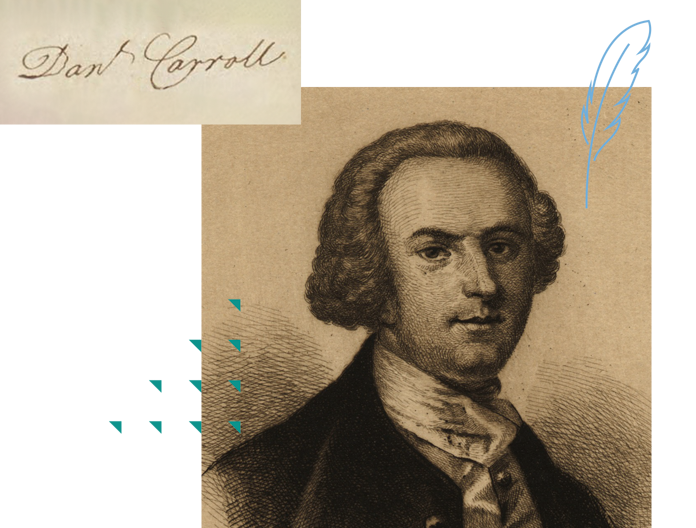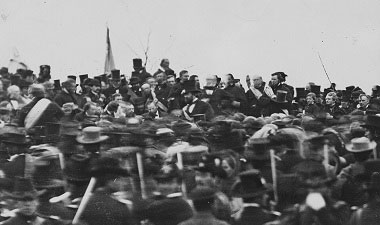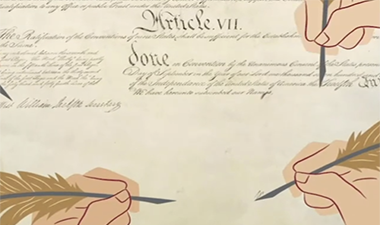Summary
Daniel Carroll was a steady supporter of a government with more authority than the Confederation Congress.
Daniel Carroll | Signer of the Constitution
2:36
Biography
Daniel Carroll was born in Maryland in 1730, the child of a socially prominent Irish Catholic, slaveholding family who owned a 27,000-acre plantation. Daniel was sent abroad to study with the Jesuits in Flanders when he was 12. In 1748, after leaving Jesuit care, he toured Europe and then returned to Maryland. On returning home, he married a cousin, Eleanor Carroll, and began life as a gentleman planter. At first, he was hesitant to support a war for independence because he feared the Revolution’s failure would lead to his family’s financial ruin. But he slowly came to support the Patriot cause.
In 1776, Maryland adopted its first state constitution, and it lifted the existing laws that excluded Catholics from public office. This led Carroll to become involved in politics and officeholding. He was elected to the Maryland Senate in 1777, and as a senator, he helped raise troops and money for the American war effort. He led the effort to prevent the state assembly from ratifying the Articles of Confederation until all the states renounced their claims to western lands. When Virginia complied, Carroll accepted an appointment to the Continental Congress, and, in 1781, he carried to its session in Philadelphia the news that Maryland had at last, agreed to adopt the Articles. He then signed the Articles, making Maryland the last of the 13 states to agree to their adoption.
In 1787, Carroll accepted another appointment, this time as a delegate from Maryland to the Constitutional Convention. He did not arrive in Philadelphia until July 9, midway through the deliberations. William Pierce drew a brief, but favorable, sketch of the newcomer, describing him as a man of “large fortune” who enjoyed great influence in his state and declaring him possessed of “plain good sense.”
Carroll exhibited this plain good sense about twenty times in the debates that followed, and, as the Convention wound down, he served on the Committee of Postponed Matters that decided a number of issues that the Convention had left in limbo. Unlike his fellow Maryland delegates Luther Martin and John Francis Mercer, Carroll was a steady supporter of a government with more authority than the Confederation. He did have some concerns that he rose to express. For example, he was opposed to the Members of Congress being chosen by their state legislature on the grounds that this would make Representatives and Senators too dependent on their state governments. And when a motion was made that the president be elected by the Congress, he joined with James Wilson in a motion to replace the words “by the legislature” with “by the people.”
Although he did not attend Maryland’s ratifying convention, he did campaign in favor of the Constitution. Once the federal government was established, he ran for and won a seat in the House of Representatives. His longstanding concern for ensuring the country’s economic and financial stability led him to support Hamilton’s steps for establishing the public credit. He also supported locating the nation’s capital on the banks of the Potomac. In 1791, President Washington named his friend Daniel Carroll as one of the three commissioners to survey and define the new District of Columbia. Carroll had a vested interest in this assignment since he owned much of the land that would be encompassed within the District’s boundaries.
Carroll’s health began to fail in the early 1790s and in 1796 he died of what doctors today recognize as non-Hodgkin lymphoma. He was 65 at the time of his death.








